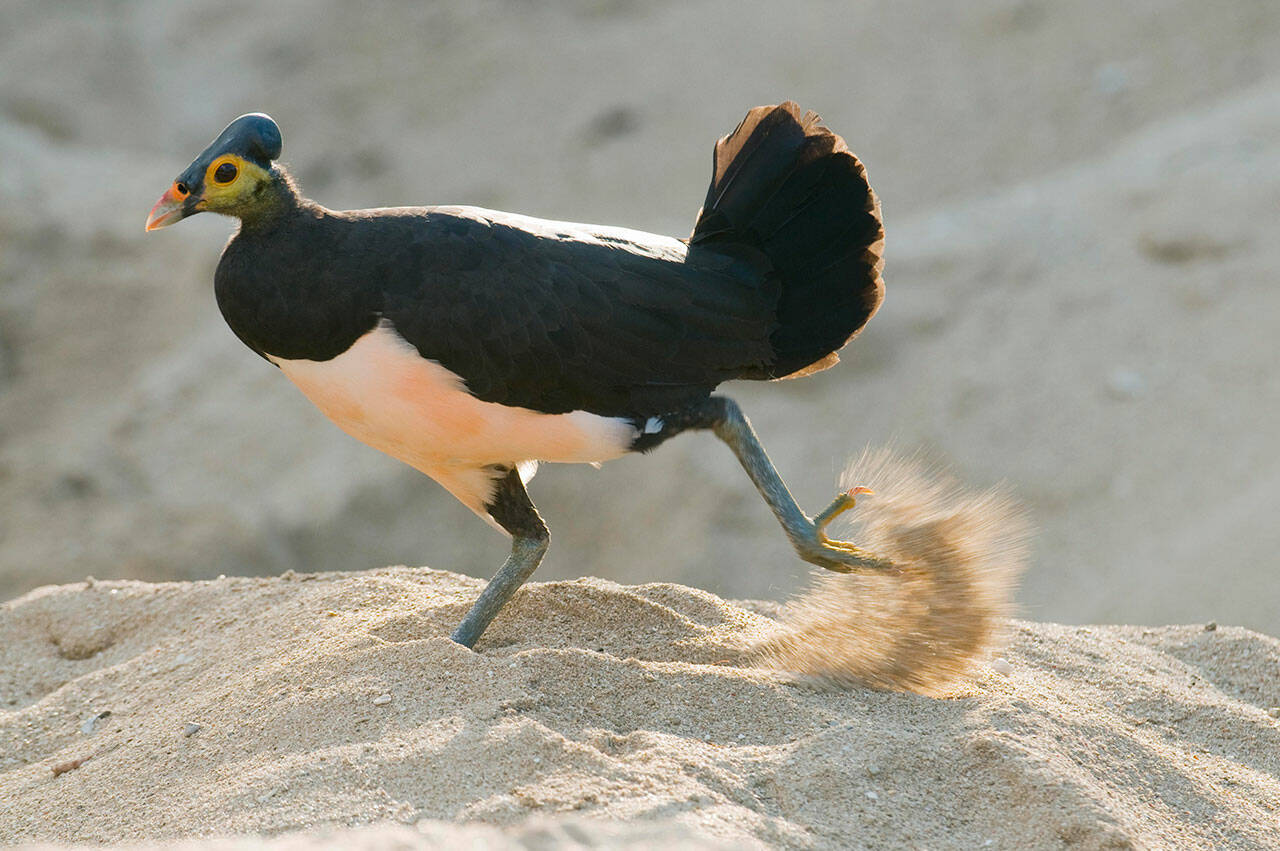Vashon-based Alliance for Tompotika Conservation (AlTo) has recently been recognized for its work in the Global Ecology and Conservation (GECCO) Journal.
A study published in GECCO highlights how AlTo’s community-based conservation work has effectively quadrupled the maleo bird population in the Tompotika region of Indonesia over the last 14 years.
Marcy Summers, the Director of AlTo and one of the 15 authors of the study, was initially sent to Indonesia in the early 2000s as part of her work at The Nature Conservancy. While working for them, she was sent to a remote part of Sulawesi, an island within Indonesia.
According to Summers, while she was working in Sulawesi, she was approached by locals who invited her to help them find a solution to prevent the extinction of the maleo.
The maleo, a bird about the size of a chicken, lives on Sulawesi. Maleo lay a single, grapefruit-sized egg in the warm sands of their nesting grounds, cover their egg with sand, and leave. However, these eggs have been targeted by poachers, who sell the eggs on the black market for the equivalent of $2 to $3 each.
When Summers returned to Vashon after her time in Indonesia, she was speaking at an Audubon presentation.
“I mentioned that there was a village in Indonesia that had asked for help to prevent the extinction of their endangered, iconic bird and people just came forward and said, ‘how can I help?’” said Summers. “A small group organized here on the island to raise some funds. That was in June 2006, and that was our seed money to get started, and then we launched the field activities in August of that same year, so just a month or two later.”
The group headed back to Sulawesi, but specifically to Tompotika, a peninsula of the eastern tip of Sulawesi’s central arm.
Summers and her group met with villagers around the region to launch partnerships to save the maleos.
Under the new partnership, former poachers could now guard and collect data at the maleo nesting grounds. According to the study, they were paid the local minimum wage, which was the equivalent of $5.50 a day. Because the maleo population had dropped so significantly, they would earn more guarding than poaching.
AlTo also focused resources on education, as they have done outreach projects and have visited all 115 Tompotika primary, middle and high schools at least once.
As more than 14 years have passed, Summers looks back to the initial trip the group took to Indonesia to where the group is now.
“Working together on this incredibly worthy project over time has built a tremendous friendship and tremendous trust and enriched everyone’s lives,” said Summers. “So, we not only have brought back the maleo but we’ve had windows into one another’s lives and cultures that have only enriched us all.”
The study published in GECCO attributes work done by AlTo for increasing maleo numbers four-fold after 14 years. The Zoological Society of London has also named the maleo as the 19th most important bird for conservation on its Evolutionarily Distinct and Globally Endangered (EDGE) list.
“I think this is an example of a beautiful Vashon project,” said Summers. “It’s a project that islanders have gotten going from the beginning, islanders have sustained over time, and although it’s much bigger than Vashon now, islanders are still at the core of it.”


